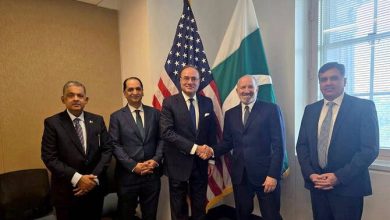Trump Set to Reinstate Sweeping Tariffs as 90-Day Pause Nears Expiry
President Trump is set to reinstate sweeping global tariffs as the 90-day suspension nears its end, reigniting fears of a global trade war.
The move targets over 60 countries and could disrupt markets, deepen international tensions, and reshape America’s economic alliances in the weeks ahead.
The United States appears poised to reinstate its broad and controversial global tariff plan as President Donald Trump shows no signs of extending the 90-day pause that followed initial backlash from financial markets. Commerce Secretary Howard Lutnick confirmed during a Fox News interview that Trump intends to let the suspension expire at the beginning of July, signaling a renewed push to implement aggressive trade measures.
Originally announced in April, the Trump administration’s tariff plan would impose import duties ranging from 11% to over 100% on goods from countries around the world. The policy sparked significant volatility on Wall Street, prompting the White House to temporarily suspend most of the measures for 90 days. However, with that pause nearing its end, administration officials are rallying behind the president’s tough stance.
Lutnick emphasized the administration’s commitment to revamping America’s trade relationships. “Tariffs are not going away,” he stated. “We could sign lots of deals now, but the president wants them to be better. You’re going to see over the next couple of weeks, really first-class deals for the American worker.”
The message was echoed by other top trade officials during interviews on major U.S. television networks. Their collective position reinforces the notion that the White House remains steadfast in its protectionist agenda, despite legal challenges and international opposition.
The expiration of the pause is expected to trigger a wave of high tariffs on approximately 60 countries. These include traditional U.S. allies and trading partners such as the European Union, South Africa, and Vietnam nations that the White House has labeled the “worst offenders” in terms of trade imbalances and unfair practices.
One of the most contentious fronts in the administration’s trade policy remains the ongoing tension with China. U.S. Treasury Secretary Scott Bessent described China as “not a reliable partner,” accusing Beijing of deliberately withholding key products from global supply chains. “What China is doing is they are holding back products that are essential for the industrial supply chains of India, of Europe. And that is not what a reliable partner does,” Bessent said in an interview with CBS News.
He noted that it remains unclear whether China’s actions are due to logistical issues or a deliberate strategy, but said clarity could come once President Trump and Chinese President Xi Jinping speak directly. A call is expected soon, though no official date has been confirmed.
The strained relationship between the U.S. and China has already led to a tit-for-tat trade conflict. While a limited trade truce was agreed upon in Geneva this May reducing U.S. tariffs on Chinese goods from 145% to 30%, and China’s retaliatory tariffs from 125% to 10% a comprehensive deal remains elusive.
Meanwhile, President Trump’s latest move to double tariffs on steel and aluminum from 25% to 50% is scheduled to take effect on Wednesday. The president claims the measure will strengthen the domestic steel industry and reduce American dependence on foreign production, particularly from China, India, and Japan countries that have surged ahead in global steel output while U.S. manufacturing has declined.
National Economic Council Director Kevin Hassett added fuel to the fire, underscoring the administration’s focus on national security. Speaking with ABC News, Hassett said: “We have to have a steel industry that’s ready for American defense. The bottom line is that we’ve got to be ready in case things don’t happen the way we want.”
China, for its part, has called on the U.S. to stop what it describes as “erroneous actions” and to respect the outcomes of the Geneva talks. A statement released by the Chinese foreign ministry urged Washington to “cease discriminatory restrictions against China and jointly uphold the consensus reached.”
As the July deadline approaches, the global community watches with growing concern. Trump’s renewed tariff push could disrupt already fragile supply chains, deepen diplomatic rifts, and reignite fears of a prolonged global trade war. For now, all eyes are on Washington and the looming deadline that could reshape the future of international commerce.



